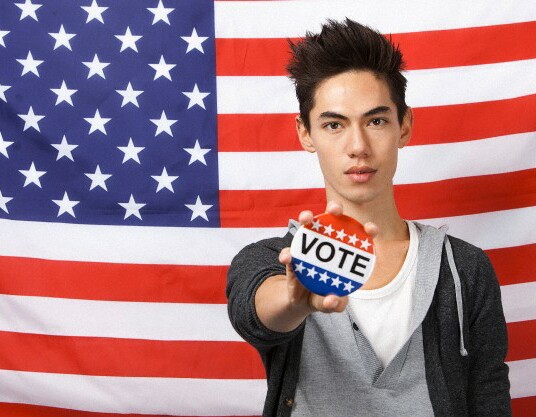What Can Brand Marketers Learn from Politics? 2016 Edition

It's become a quadrennial meme. "What can marketers learn from US Presidential political campaigns?" It was not always so; there was not much conversation about brands being imperiled by sweating on stage in the Kennedy/Nixon era, but the last three cycles have been full of "learnings" from the social media strategies of 2008 and 2012 and now, in 2016, specifically from the Trump insurgency.
In the first two cycles the received wisdom was that the grass roots power of social media activation swept President Obama to office. Less attention was paid to the fact that they also involved the highest advertising spend in campaign history or the fact that the 2008 campaign was set against a backdrop of at least two ongoing wars, a stock market in free fall, the highest unemployment since the Great Depression and a housing crisis that led to repossessions and a collapse in the values of the biggest asset many Americans owned. Significant? Probably.
In 2012 the world looked better but the blood was not dry and the incumbent President ran against a party with no ideas better than they had in 2008 and with changing demographics at his back. To paraphrase the *Sun newspaper of 25 years ago ... "It wasn't the tweet wot won it."
Sure, social media was interesting and valuable, but its role was exaggerated by any reasonable measure. Most interesting among the arguments for its effect was that social media created an inescapable need for speed, truth and authenticity -- and that was the message for brands. In a connected world you could run and run fast but you could not hide.
So here we are in 2016. The Republican front runner, for now, has achieved his position by translating tabloid fame into what a cohort of the population have embraced as "straight talking anti-establishment populism." Truth and authenticity would seem to have very little to do with it. Winston Churchill, in order to remain on the right side of parliamentary protocol, once accused an opponent of being "economical with the truth." It would be an accusation that could be reasonably leveled at Mr. Trump and others and it would appear that no amount of social media outing and outrage can persuade Mr. Trump's supporters of his possible unsuitability for office.
So ... marketers are now hearing from pundits that they can embrace some of the Trump playbook. An article in Ad Age on March 8 (the parentheses are mine) suggested the following might work:
1. Keep messages simple (truth optional)
2. Leverage live events (you can't beat rabble rousing)
3. React in real time on social media (keep lying until it becomes the truth)
4. Be bold and less apologetic (contempt for both the truth and your competitors are equally valuable)
5. Don't underestimate the power of earned media (all news is good news)
I have sufficient confidence in the marketing community to expect that only the non-parenthetical version will make the marketing playbook.
Of all the advice offered it's possible that "be bold" may be the most significant. The implication is that you can profit from fearlessness if you can build a brand that is beloved by small but committed population cohorts and if you are unconcerned about rejection by the majority. In an atomized world of communication and commerce, this seems like a highly plausible opportunity and one that can unlock the potential of media targeting.
Perhaps the more important learning from this race is the evidence that little is now beyond disruption and that walls of the establishment are not impenetrable and that committed minorities can make significant inroads in traditional structures.
Hopefully, and I am expressing a preference, that the power of the minority never translates into control of the majority. May Mr. Trump get to 49% and never to 51%.
*The Sun is Britain's biggest tabloid daily. After John Major's unexpected victory over Labour's Neil Kinnock in the 1992 General Election their headline the next day was, "It was the Sun wot won it." The Sun's final pre-election broadside before the election was, "If Kinnock wins today will the last person to leave Britain please turn off the lights." The Sun had declared war, then victory.
Image at top courtesy of Corbis. The opinions and points of view expressed in this commentary are exclusively the views of the author and do not necessarily represent the views of MediaVillage/MyersBizNet management or associated bloggers.


